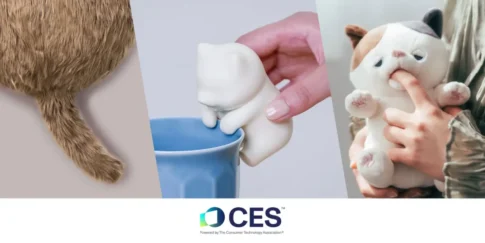
The child care advice materials distributed by the WHO (International Health Organization) under the new coronavirus infection explosion are graphical, but there is no Japanese version, and they are also digested.
WHO:Coronavirus disease (COVID-19) advice for the public: Healthy Parenting
The "Tips for raising children at home during the COVID-19 infection explosion" published by UNICEF (United Nations Children's Fund), which is also introduced in this document, was carefully written in English, so I decided to use the "COVID-19", which has a reputation for high translation accuracy in recent years.Translated from DeepLThe following is a translation into Japanese using the "Japanese translation" method and correcting expressions that may be difficult to understand. (Therefore, there is a possibility of translation errors. Please let us know if you notice any.)
Since overseas information can also be obtained using such translation sites, it seems that it is good even in normal times to look at overseas childcare information.
original articleUNICEF:Tips for parenting during the coronavirus (COVID-19) outbreak
1. one-on-one time
Can't make it to work? School out? Worried about money? It is normal for you and your children to feel stressed and overwhelmed.
School closures are also an opportunity to develop better relationships with children and teenagers. One-on-one time is freeing and fun. It makes children feel loved and secure and shows them that they are important.
(in Japanese history)Click here to see the English version of the same poster by WHO.)
Allow time to spend with each child.
It can be just 20 minutes or more. By creating a time each child can monopolize the parent or guardian at the same time each day, the child or teenager can look forward to doing so.
Ask your child what he or she would like to do.
Making choices builds children's confidence. If children want to do something but can't spend time at a physical distance from each other to prevent infection, this is a chance to talk with them about it.
Ideas with Babies and Toddlers
Imitate facial expressions and sounds.
They sing songs and make music with pots and spoons.
Stack cups and blocks.
We will tell stories, read books, and share photos.
Think about it with your little one.
Read books and look at pictures.
Go for a walk - outdoors or around the house without crowds.
Dancing and singing to music while being mindful of their surroundings.
Do chores together - make cleaning and cooking a game.
Help with school work.
Thinking with Teens
Talk about what you like: sports, music, celebrities, friends, etc.
Go for a walk outdoors without crowds.
Exercise together to the music of your choice while being mindful of your surroundings.
Parents should switch off the TV or phone. Listen to them and look at them. Let them pour their whole heart and soul into it. Have fun.
2. keep positive
It is difficult to be positive when children and teenagers disrupt the activities and schedules of us parents. We say, "Stop doing that!" we often say. But children are much more likely to do what we ask if we give them positive directions and lots of praise for what they do right.
Parents say the behavior they want to see
Use positive language to tell your child what to do, such as, "Let's put our clothes away and keep them clean" (instead of "don't make a mess").
It all lies in the way we communicate our intentions.
Yelling at your child will only make you and your child more stressed and angry. Get your child's attention by calling his or her name calmly and slowly.
Praise your child when he or she is behaving well!
Praise your child or teenager for a job well done. They may not show a joyful response to your praise, but you will see them doing that good thing again. It will also reassure them that they know you care about them.
I'll ask for what seems realistically possible.
Can your child actually do what you are asking? It is very difficult for a child to be quiet in the house all day, but maybe they can be quiet for 15 minutes while you are on the phone.
Helps keep you connected
Teens especially need to communicate with friends. Help your teenager's family connect with friends through social media and other safe distance methods. This is something you can do together.
3. get a structured routine
COVID-19 has taken away our daily work, home and school routines. This is hard on our children, teenagers, and you. But creating a new routine can help.
Create a flexible but consistent daily routine
Create a schedule for you and your child that places time for set activities as well as free time. This will help your children feel more comfortable and behave better.
Children and teenagers can help their parents plan their day's routine, just as they would make a school timetable. When children are helped to make their school timetable, they are more likely to follow it.
Incorporate exercise into your daily routine.
Teach your child to keep a safe distance.
If it is OK in your country, let the children out.
You can also write letters or draw pictures to share with others.
Talking about how adults keep children safe can reassure them.
Listen to your child's suggestions and take them seriously.
Making Handwashing and Hygiene Fun
Decide or create a 20-second song to wash your hands. Add an action to hand washing as well.
Give children points or praise if they wash their hands regularly.
Create a game in which the player is rewarded for touching the nose, mouth, and face less often (they can count on each other).
You are a role model for your child's behavior.
If you practice safe distance and hygiene yourself and treat others, especially the sick and vulnerable, with compassion, your children and teenagers will learn from you.
At the end of each day, take a minute to think about the day. Tell your child one thing he or she did that was good or fun. Give yourself a pat on the back for a job well done today. You are a star!
Continued in Part 2

